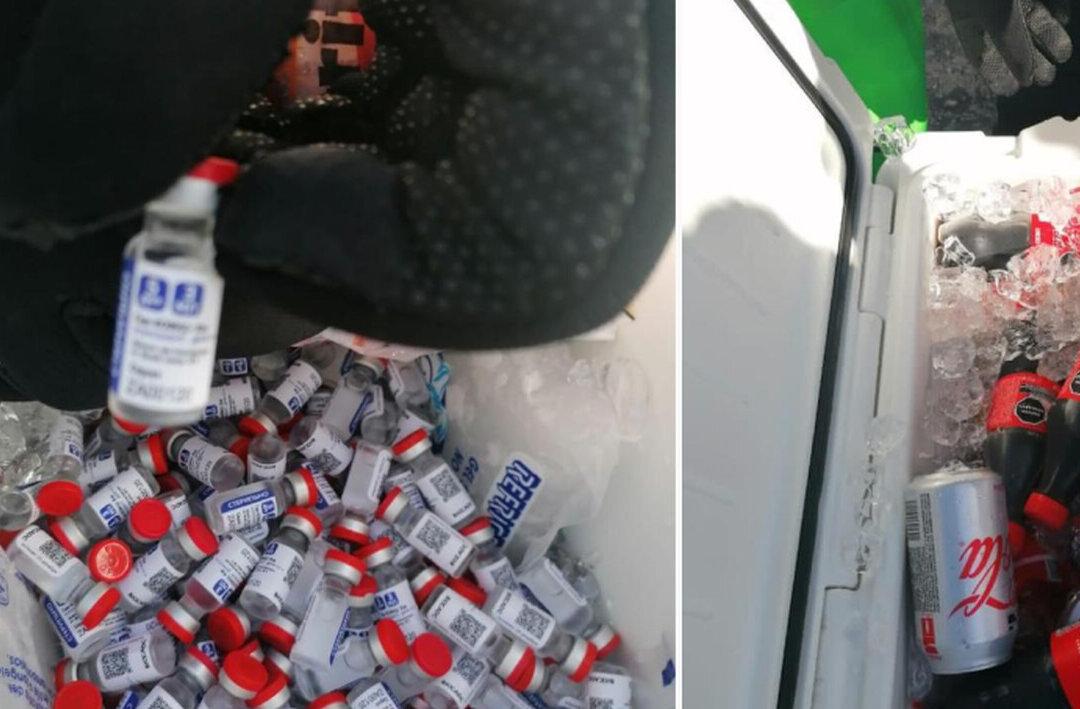Mexican officials have seized a shipment of fake Sputnik V COVID-19 vaccine that was intended to be transported via a private aircraft to Honduras.
According to a March 17 statement from the government, officials found about 5,775 fake doses of the Russian vaccine inside two ice chests that were aboard a private aircraft at the Campeche International Airport. Photos taken by government officials, who worked with armed forces, showed them stowed alongside soft drinks and sweets in the plane.





